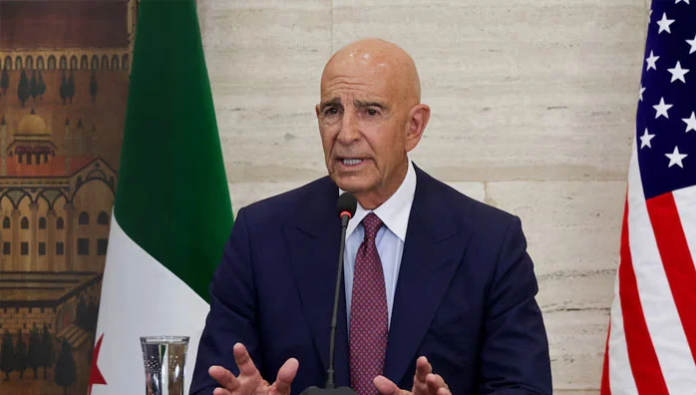DAMASCUS: Syria and Israel are close to striking a “de-escalation” agreement in which Israel will stop its attacks while Syria will agree to not move any machinery or heavy equipment near the Israeli border, a senior US envoy said on Tuesday.
Speaking to reporters on the sidelines of UN General Assembly meetings in New York, US Special Envoy for Syria Tom Barrack said the agreement would serve as the first step towards the security deal that the two countries have been negotiating.
Syria and Israel are in talks to reach an agreement that Damascus hopes will secure a halt to Israeli airstrikes and the withdrawal of Israeli troops who have pushed into southern Syria.
US President Donald Trump has sought to strike an agreement between the two sides that would be announced this week but not enough progress has been made so far and the Rosh Hashana holiday, the Jewish New Year this week, has slowed down the process, Barrack said.
“I think everybody is approaching it in good faith,” Barrack said.
Israel and Syria have been Middle East adversaries for decades. Despite the overthrow of Syria’s longtime President Bashar al-Assad last December, territorial disputes and deep-seated political mistrust between the two countries remain.
Israel has voiced hostility to Syria’s government, pointing to President Ahmed al-Sharaa’s former jihadist links, and has lobbied Washington to keep the country weak and decentralised.
After months of encroaching into the demilitarised zone, Israel abandoned the 1974 truce on December 8, the day a rebel offensive ousted Assad. It struck Syrian military assets and sent troops to within 20km (12 miles) of Damascus.
Since then, Israel has carried out more than 1,000 strikes on Syria and conducted more than 400 ground incursions, Sharaa said last week.
Speaking shortly before Barrack at an event in New York, Sharaa, a former al Qaeda leader who led rebel forces that overthrew Assad’s government last year, expressed concern that Israel may be stalling the talks.
“We are scared of Israel. We are worried about Israel. It’s not the other way around,” he said.

















